Indigenous Governance Database
Cherokee Nation
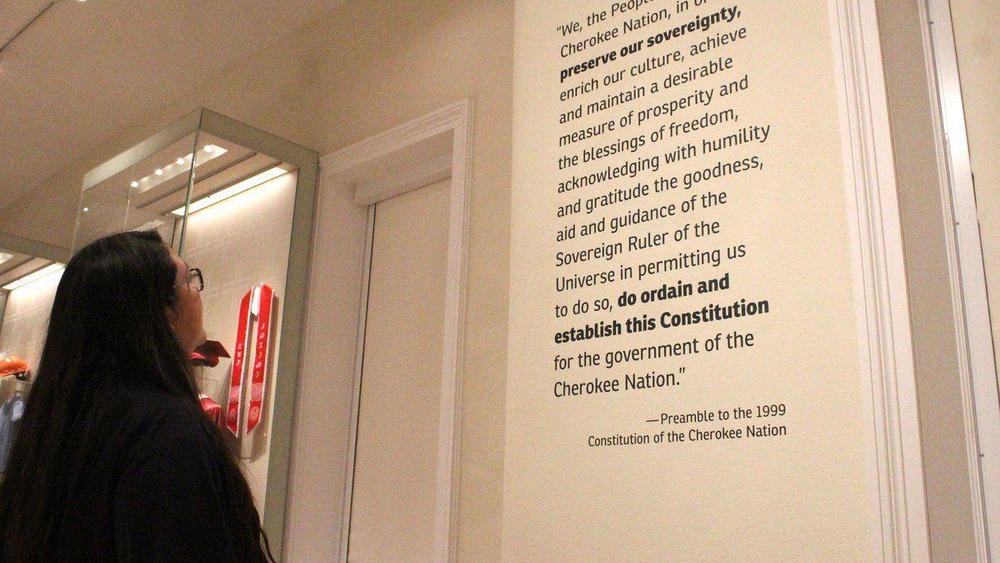
Cherokee Nation '99 Constitution Incorporated Older Ideas
Before the Cherokee Nation 1999 Constitution was ratified by voters in 2003 and recognized by the federal government in 2006, the tribe was governed under different laws that required extensive input and oversight by Cherokees when they decided to rewrite the document in 1995. Under the 1975…
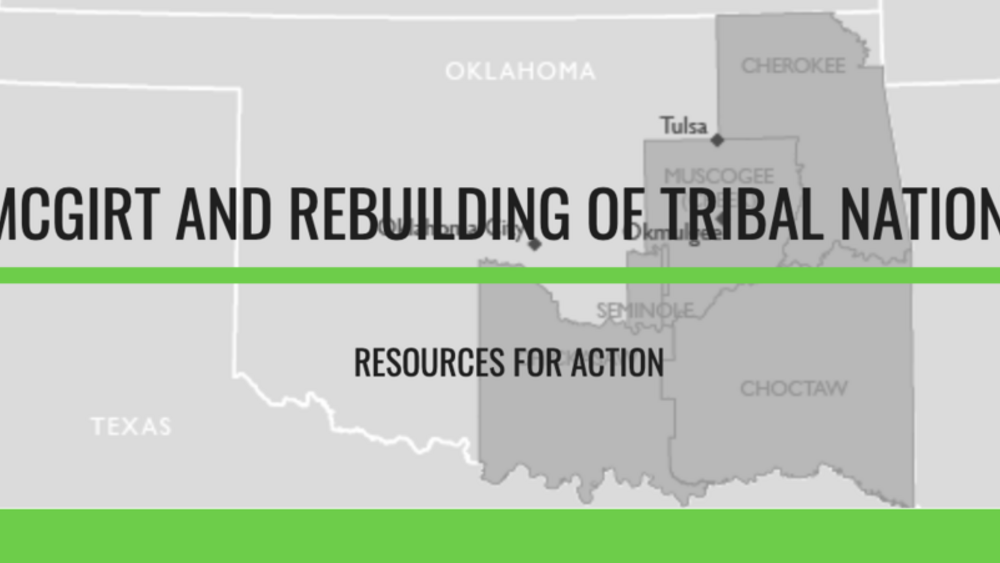
McGirt and Rebuilding Tribal Nations Toolbox
The McGirt decision has changed the legal landscape and created new opportunities for tribal nations starting with the Five Tribes in Eastern Oklahoma and potentially for tribal nations across Indian Country. It also has been the source of confusion, hyperbole, and alarm among some commentators.…
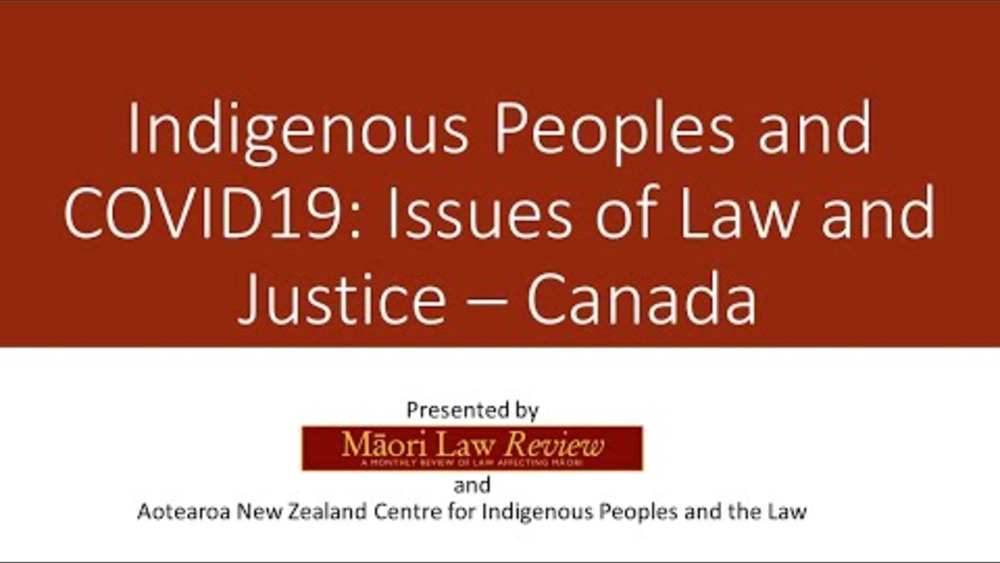
Indigenous Peoples and COVID-19: Issues of Law and Justice – Canada
A co-production of New Zealand's Victoria University of Wellington and the Aotearoa New Zealand Centre for Indigenous Peoples and the Law, the "Indigenous Peoples and COVID-19: Issues of Law and Justice" is a series of conversations focused on the experiences of Indigenous Peoples with COVID…
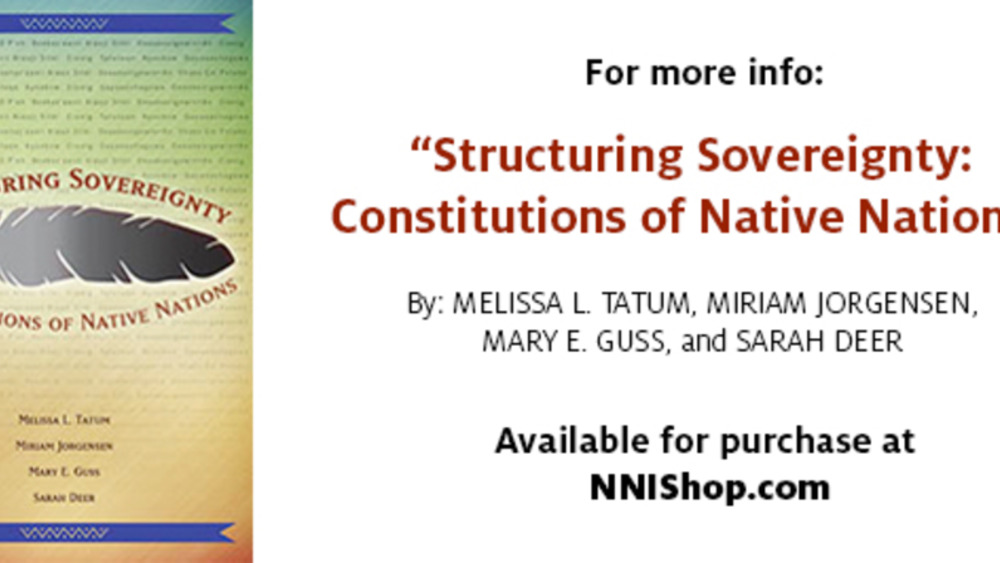
Cherokee Nation Constitution
Cherokee Nation is spread across 14 counties in northeastern Oklahoma with a population of 300,000 people. The constitution was enacted in 2003. Cherokee Nation allows citizens who live outside the territory to vote in elections and be represented on the council. Preamble: We, the People of…
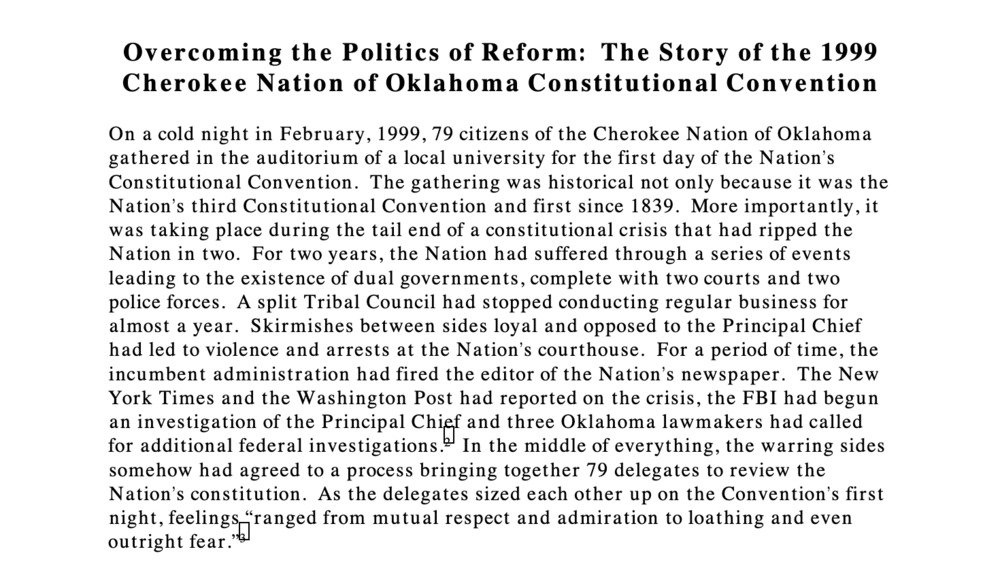
Overcoming the Politics of Reform: The Story of the 1999 Cherokee Nation of Oklahoma Constitutional Convention
A pressing international challenge is developing processes of constitution-making that manage the politics of reform and produce legitimate and effective constitutions. This challenge is of special concern for numerous American Indian nations that have been embroiled in dual governments and…
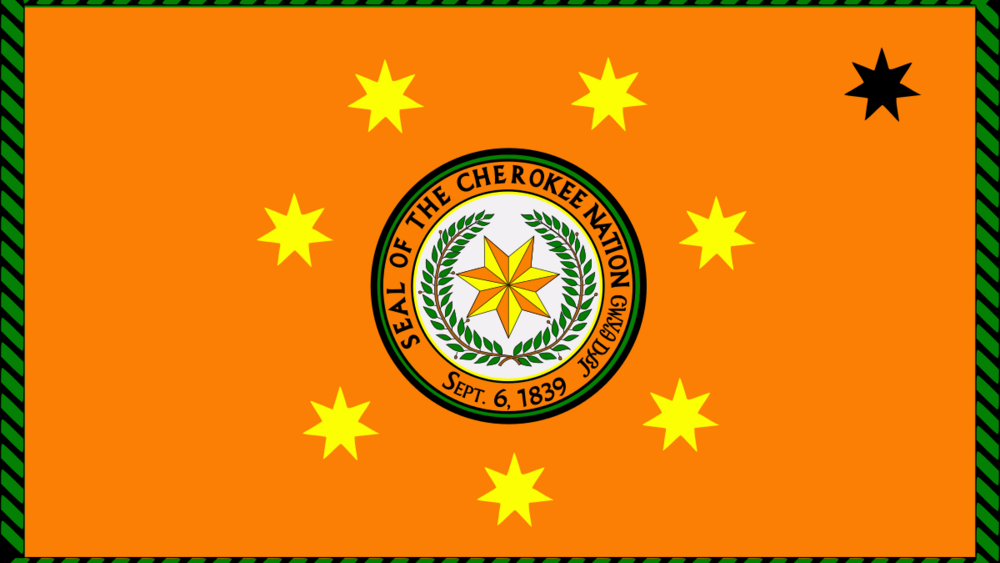
Cherokee Nation: Amendments Excerpt
Article XV. Initiative, Referendum and Amendment. Section 9. No convention shall be called by the Council to propose a new Constitution, unless the law providing for such convention shall first be approved by the People on a referendum vote at a regular or special election. Any amendments,…
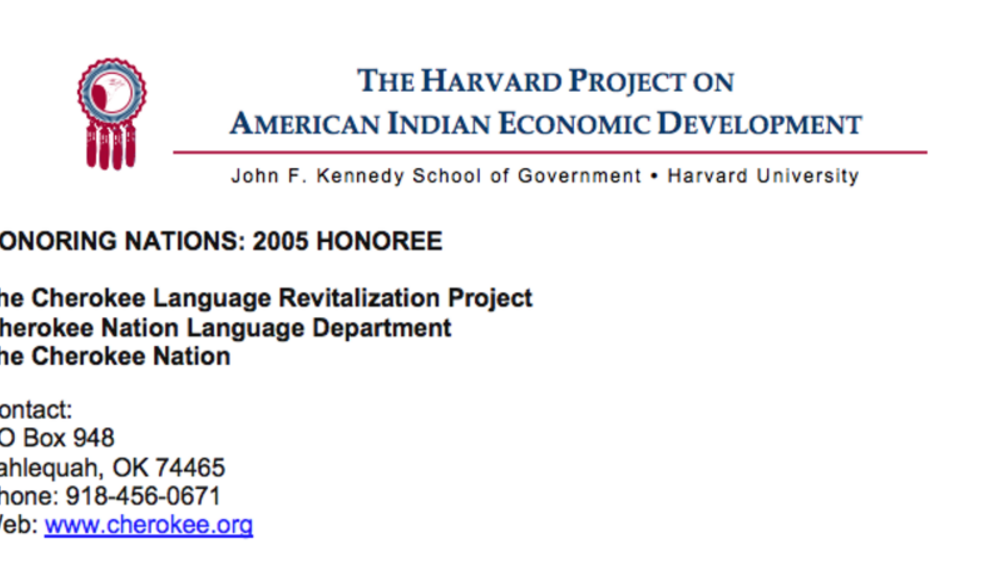
Cherokee Language Revitalization Project
In 2002, the Cherokee Nation carried out a survey of its population and found no fluent Cherokee speakers under the age of 40. The Cherokee Principal Chief declared a "state of emergency," and the Nation acted accordingly. With great focus and determination, it launched a multi-faceted initiative…
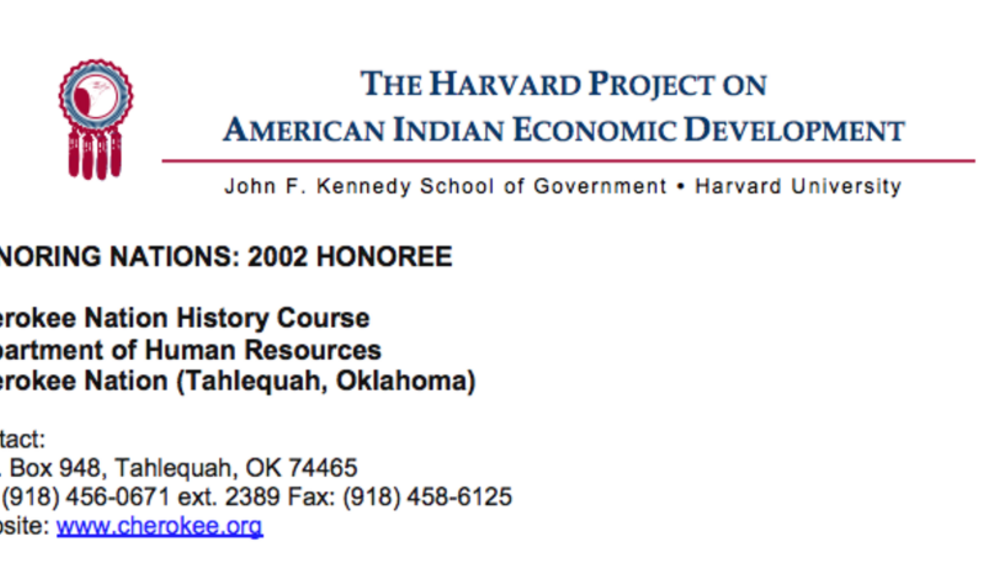
Cherokee Nation History Course
Launched in 2000, the Cherokee Nation History Course is a free, 40-hour, college-level study offered to 1,800 tribal employees and members of Cherokee communities. Through lectures, discussions, case exercises, and role-playing, the course teaches Cherokee history, culture, and government to both…
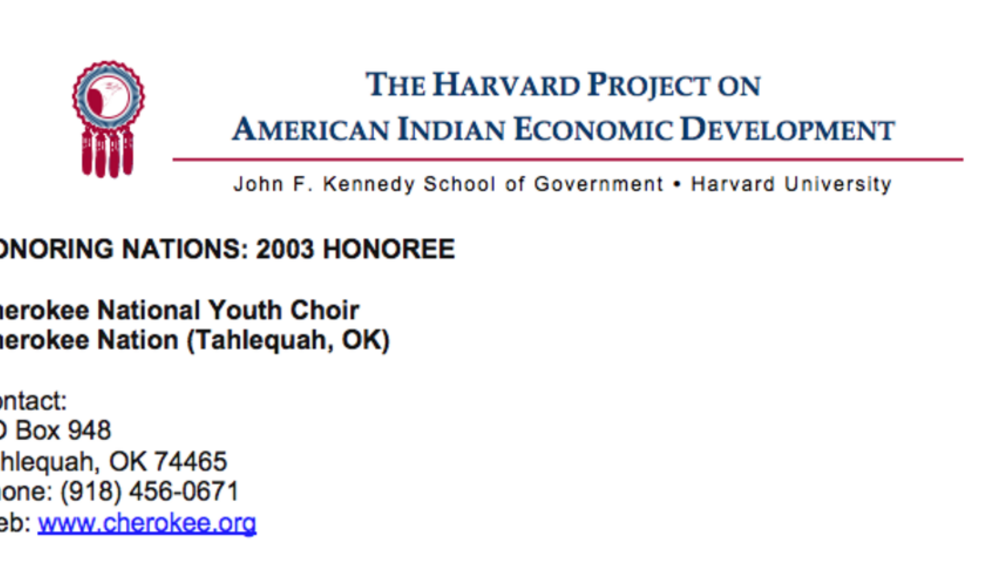
Cherokee National Youth Choir
The Youth Choir presents an innovative approach to promoting and encouraging the use of the endangered Cherokee language among its youth while also instilling Cherokee cultural pride. The award-winning choir — comprised of 40 young Cherokee ambassadors — has performed in venues across the US,…
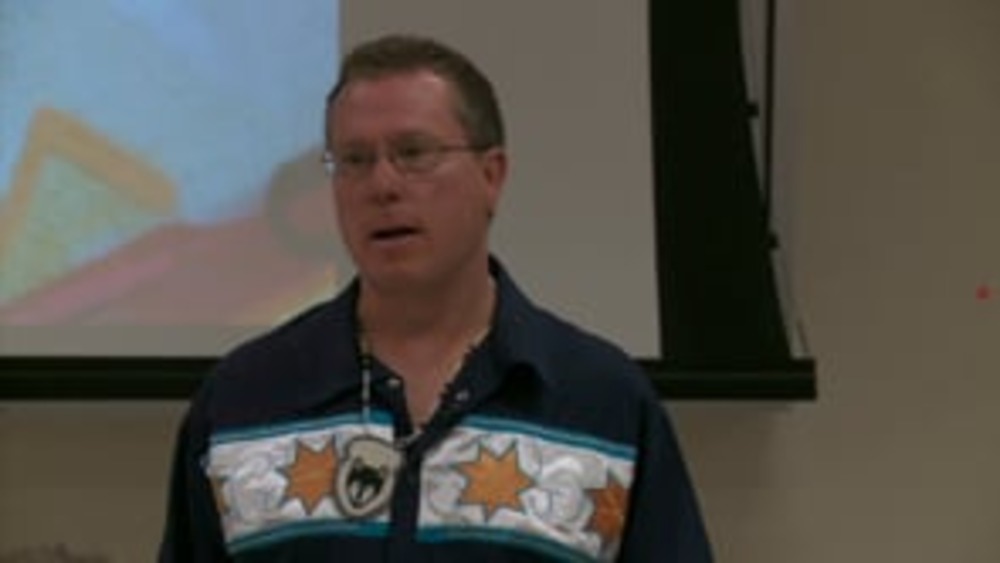
Jeff Corntassel: Sustainable Self-Determination: Re-envisioning Indigenous Governance, Leadership and Resurgence
Scholar Jeff Corntassel (Cherokee) lays out his comprehensive explanation for what sustainable self-determination entails for Indigenous peoples in the 21st century, and provides examples of some of the ways that he and others are engaging in small and large acts of resurgence that contribute to…
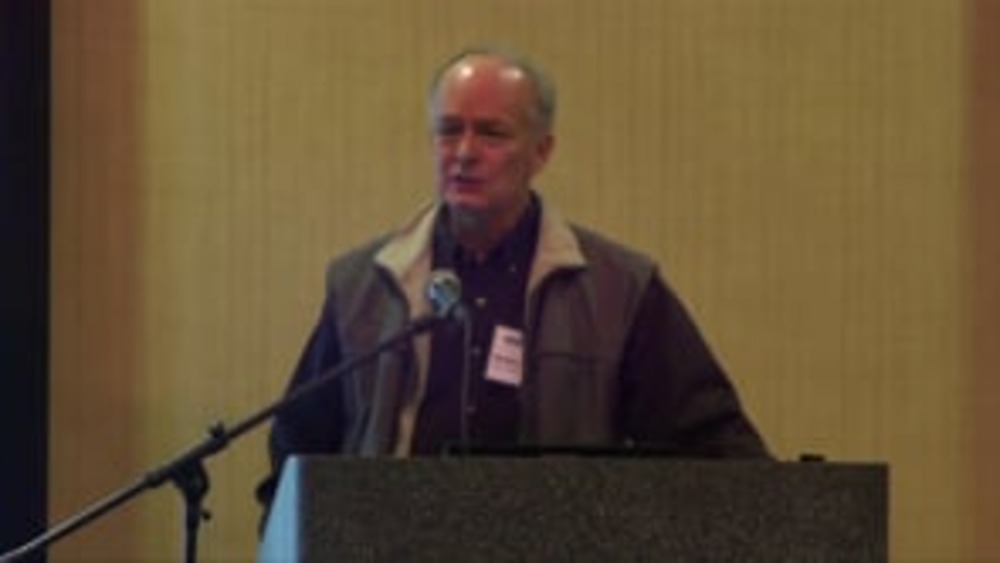
Stephen Cornell: Creating Citizens: A Fundamental Nation-Rebuilding Challenge
NNI Faculty Associate Stephen Cornell discusses how colonial policies have distorted and corrupted Native nations' conceptions of identity, citizenship and nationhood, and stresses the need for Native nations to forge a strategic vision of their long-term futures and then work to create among their…
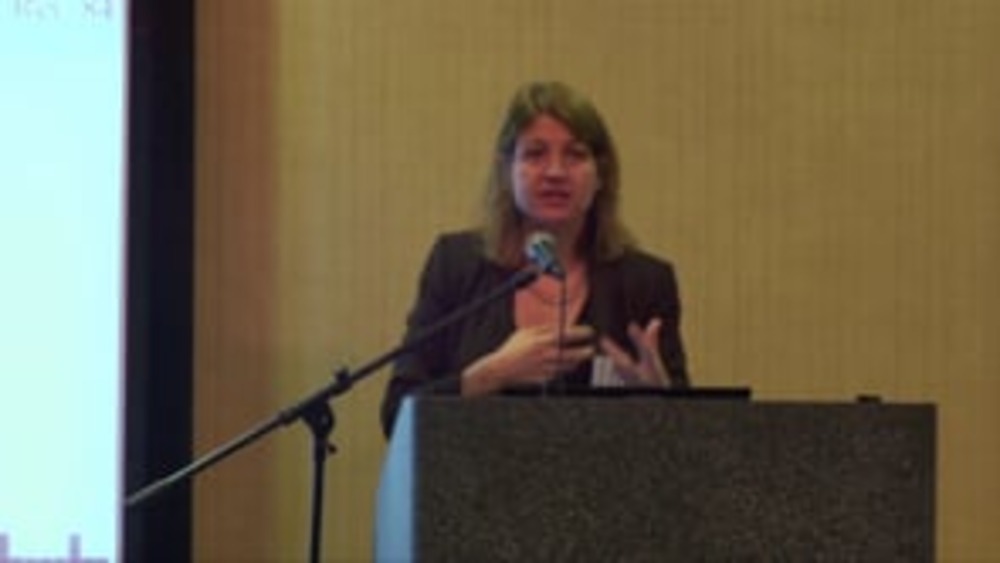
Bethany Berger: Citizenship: Culture, Language and Law
University of Connecticut Law Professor Bethany Berger provides a brief history of the federal policies that have negatively impacted the ways that Native nations define and enforce their criteria for citizenship historically through to the present day. This video resource is featured on the…
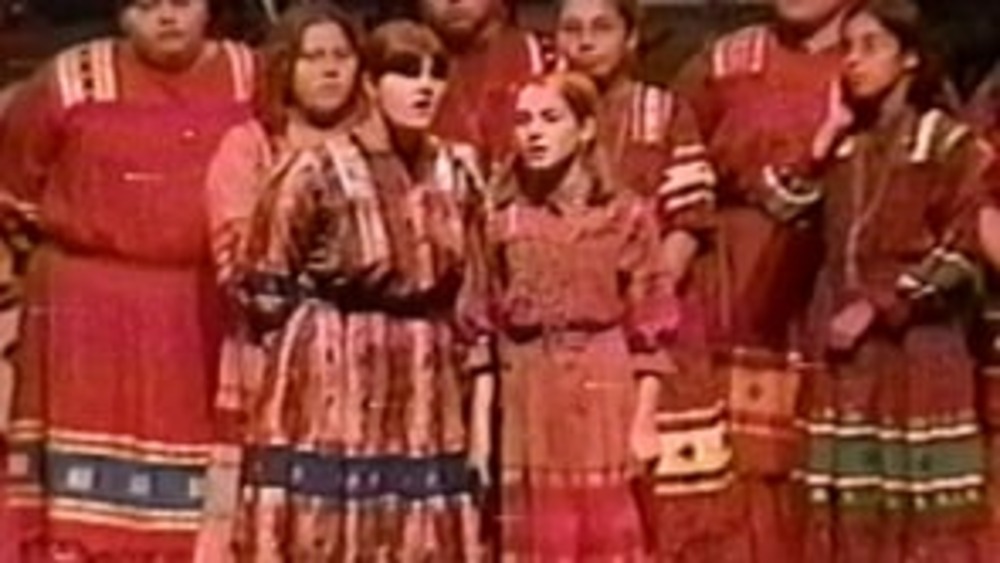
Cherokee National Youth Choir - Video
This video -- produced by the Cherokee Nation Education Department -- is a sample reel of the Cherokee National Youth Choir, an innovative approach to promoting and encouraging the use of the endangered Cherokee language among its youth while also instilling Cherokee cultural pride. The award-…
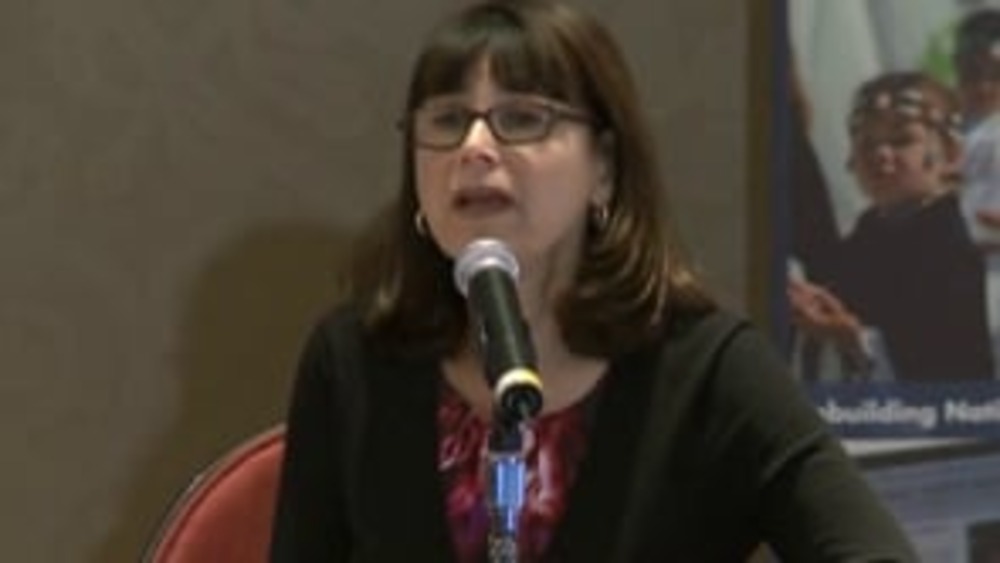
Carole Goldberg: Internal Considerations in Redefining Citizenship
Scholar Carole Goldberg discusses the internal considerations that Native nations should ponder when deciding whether and how to change their citizenship criteria.
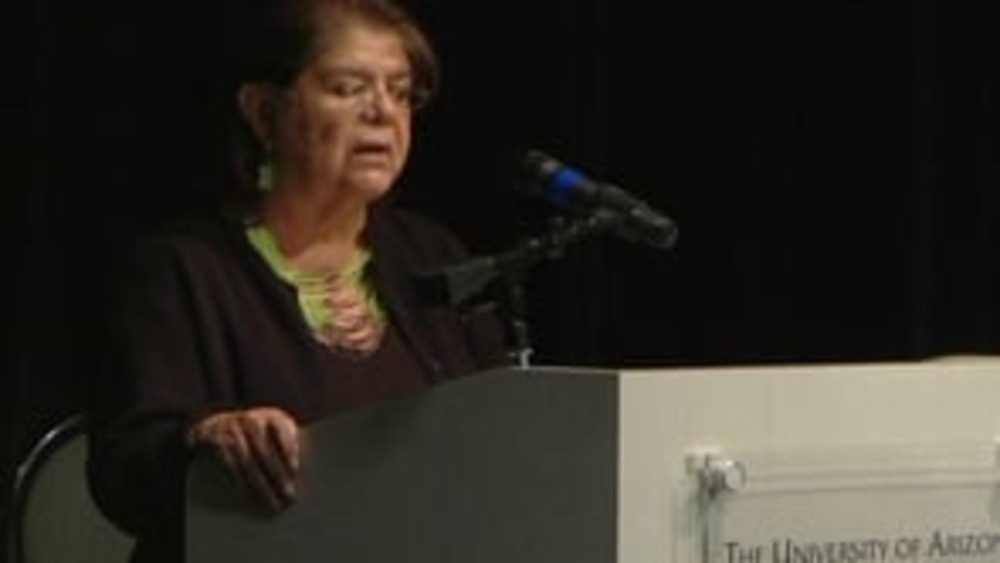
Wilma Mankiller: What it Means to be an Indigenous Person in the 21st Century: A Cherokee Woman's Perspective
Former Principal Chief of the Cherokee Nation Wilma Mankiller discusses the common misperceptions that people have about Indigenous people in the 21st century, and the efforts of Indigenous peoples to maintain their identity, cultures, values, and ways of life.
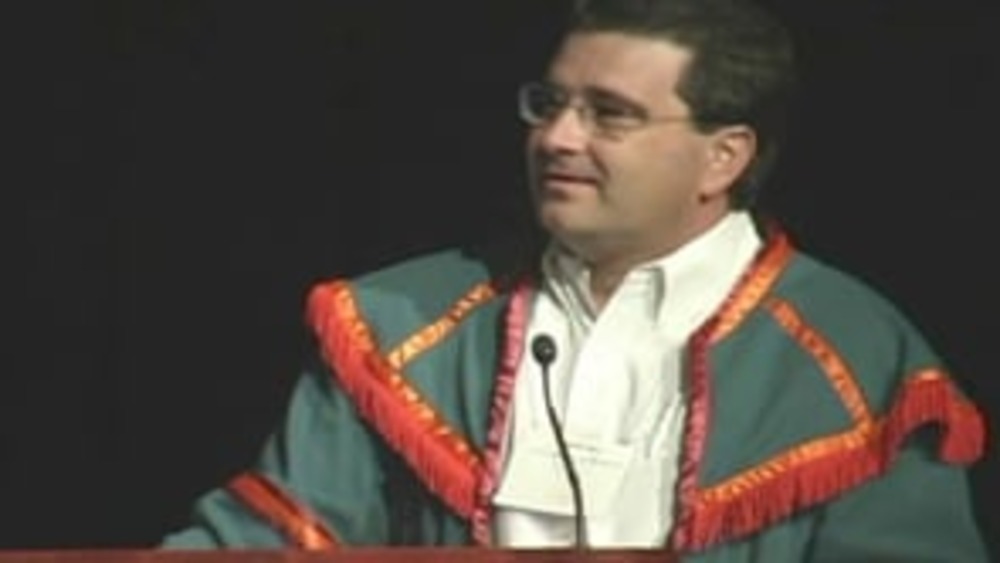
Honoring Nations: Dusty Delso: Cherokee Language Revitalization Project
Dusty Delso presents an overview of the Cherokee Language Revitalization Project to the Honoring Nations Board of Governors in conjunction with the 2005 Honoring Nations Awards.
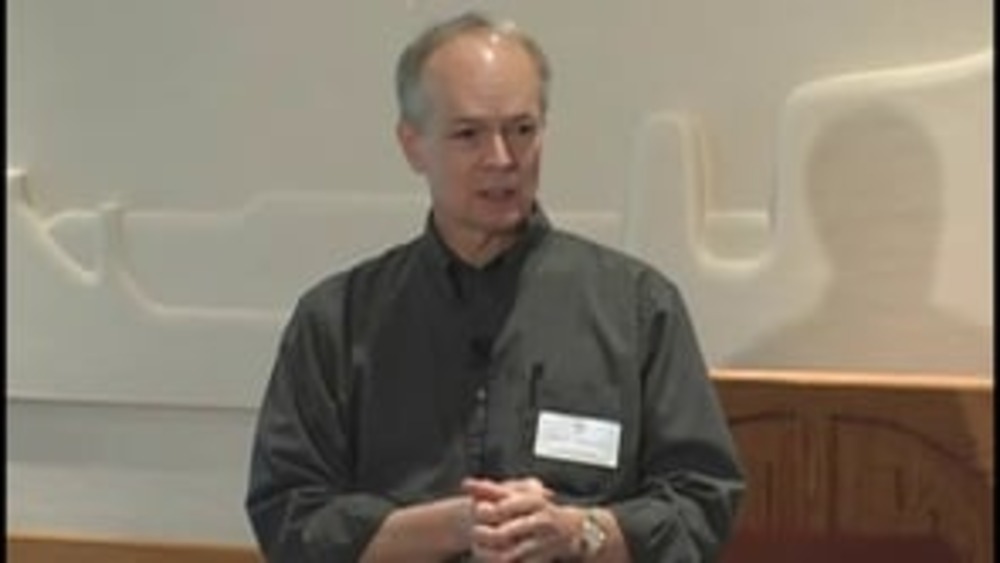
Stephen Cornell: Governance, Enterprises, and Rebuilding Native Economies
Harvard Project on American Indian Economic Development Co-Director Stephen Cornell discusses the two basic approaches Native nations typically take as they work to build and sustain nation-owned enterprises, and shares a number of examples from across Indian Country.
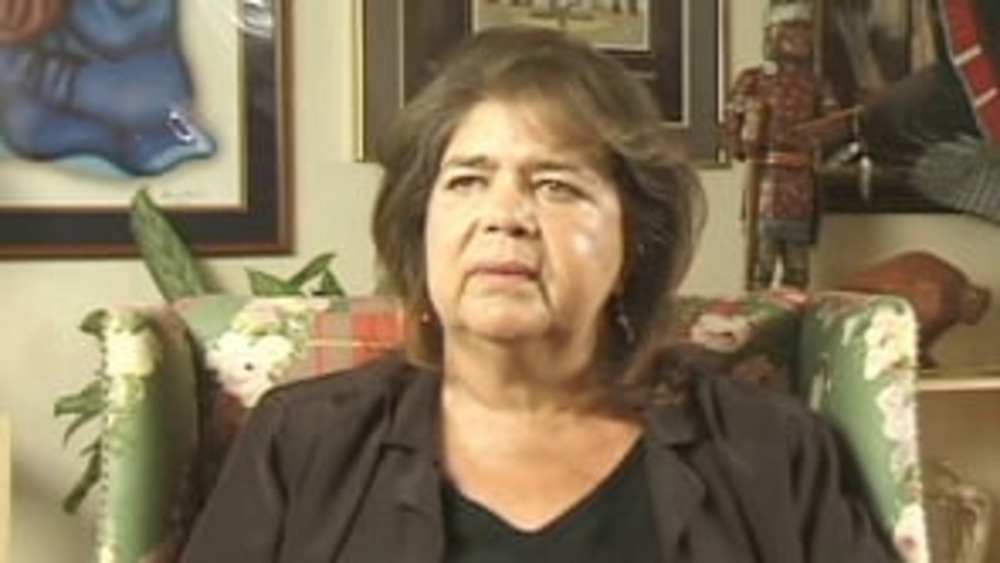
Great Tribal Leaders of Modern Times: Wilma Mankiller
Produced by the Institute for Tribal Government at Portland State University in 2004, the landmark “Great Tribal Leaders of Modern Times” interview series presents the oral histories of contemporary leaders who have played instrumental roles in Native nations' struggles for sovereignty, self-…
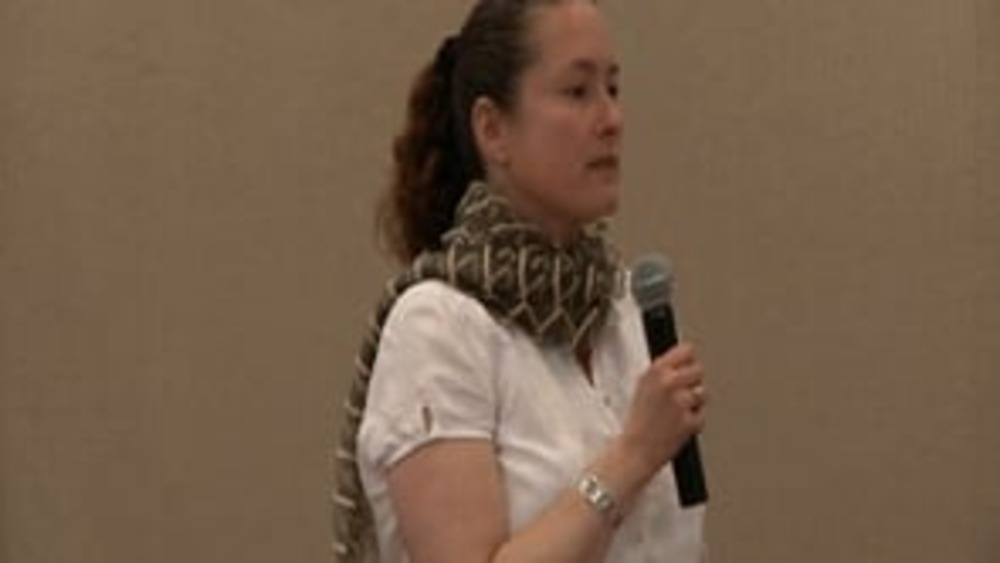
Miriam Jorgensen: Organizing the Reform Process
NNI Director of Research Miriam Jorgensen shares what she sees as some of the critical keys to Native nations' efforts to develop and implement effective constitutional reform processes. This video resource is featured on the Indigenous Governance Database with the permission of…
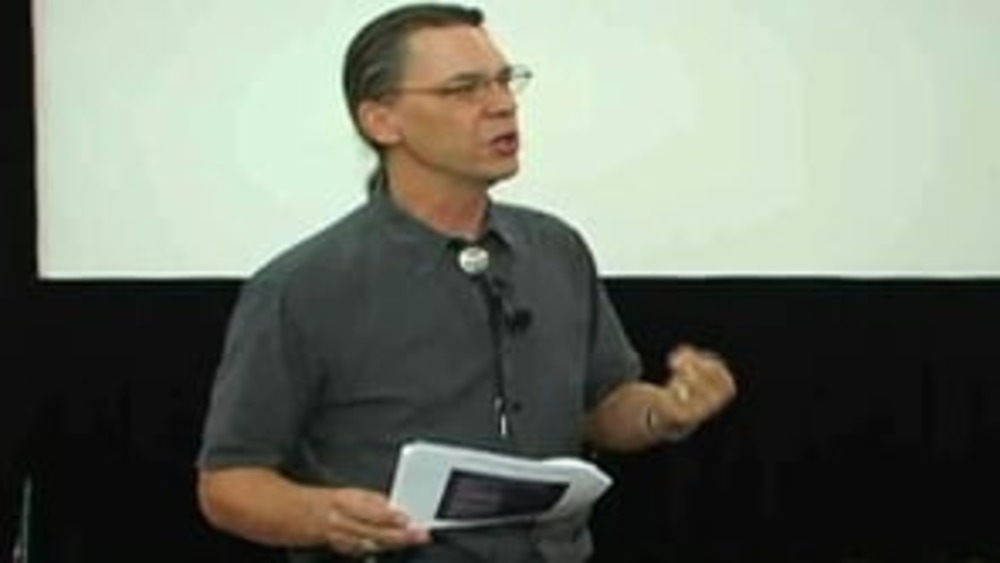
From the Rebuilding Native Nations Course Series: "Justice Systems and Cultural Match"
Professor Robert A. Williams, Jr. argues that Native nations can reintegrate their unique cultures and common law into their governance systems, specifically their systems for resolving disputes and providing justice to their citizens and others.
